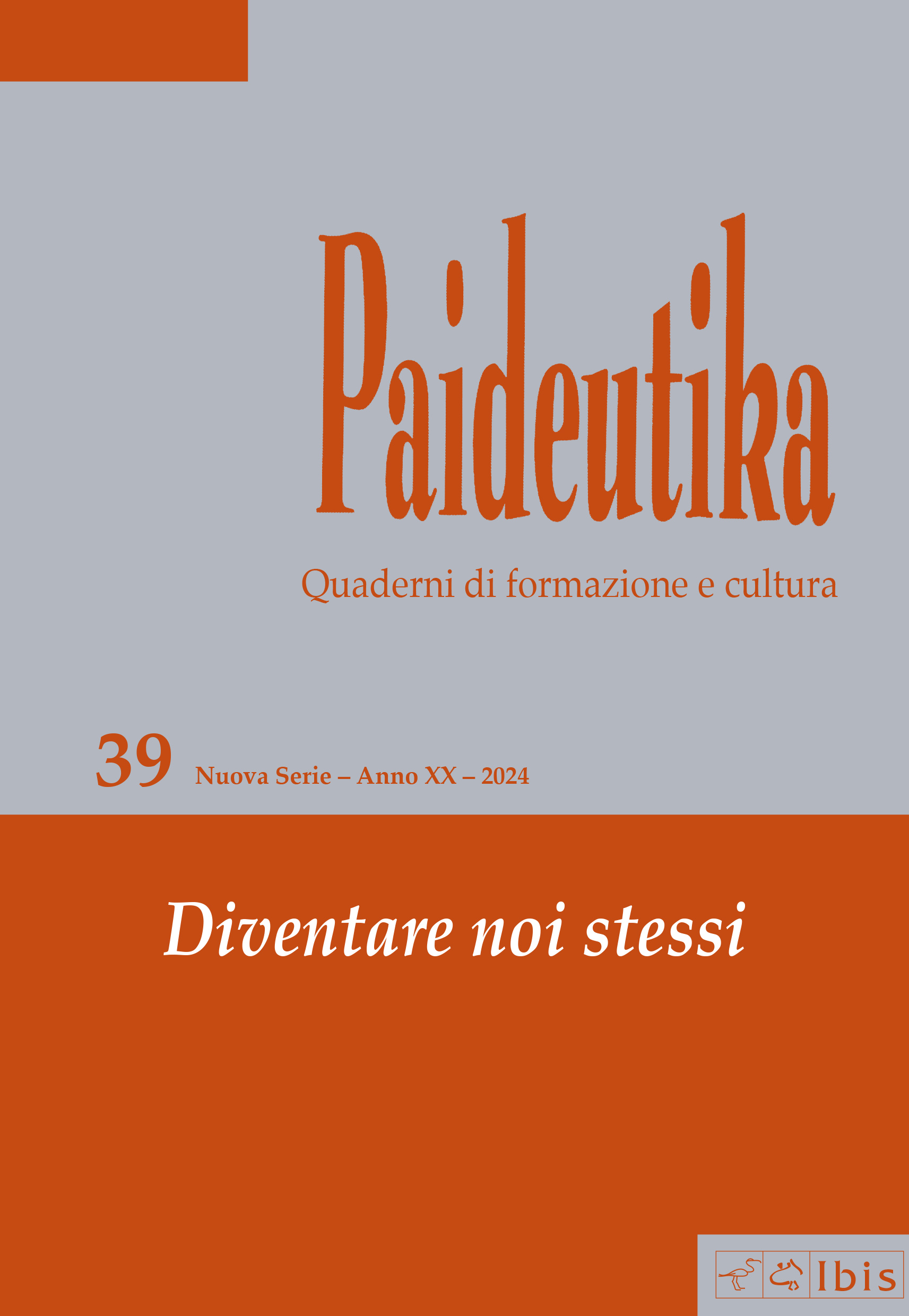Three Lives Bound by Death
An Unusual Aspect of Giovanni Gozzer's Pedagogy
DOI:
https://doi.org/10.57609/paideutika.vi39.7098Keywords:
Giovanni Gozzer, transformation, methodology, moral edification, personAbstract
The article focused a key concept of Giovanni Gozzer’s pedagogy (1915-2006): transformation. This principle emerges as fundamental in the educational environment where the author worked, highlighting his concern that the school might deteriorate into a mere pursuit of objectives. It is clearly manifested in his comparative perspective and, no less importantly, deeply reflected in his methodological sensitivity. After an analysis of Gozzer's pragmatist vision and the guiding principle of the person, an exploration will be undertaken of a lesser-known work by the author titled La morte canta sull’albero. This analysis seeks to delve into the refined sensitivity of the author in narrating three interrupted life stories, from which fundamental ethical principles such as freedom of conscience, the pursuit of justice, and the choice of personal sacrifice for the common good will emerge. All these elements significantly contribute to understanding the Gozzerian urgency of transformation and, importantly, underscore the central role of moral edification in Gozzer’s methodological framework.
Downloads
Published
How to Cite
Issue
Section
License
Copyright (c) 2024 Paideutika

This work is licensed under a Creative Commons Attribution-NonCommercial-ShareAlike 4.0 International License.


